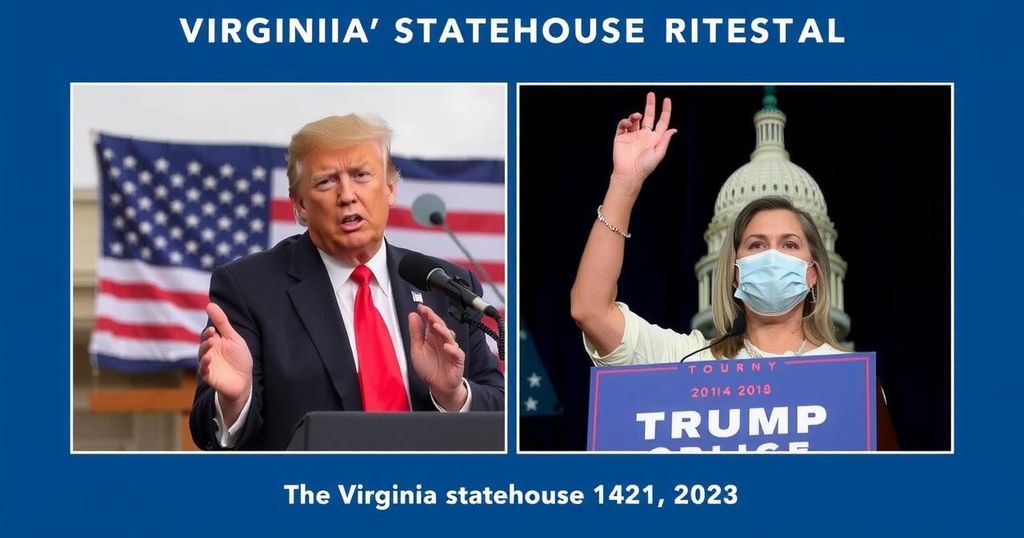Virginia Special Elections: A Crucial Test for Statehouse Control and Voter Sentiments

Virginia’s upcoming special elections on Tuesday will fill key legislative seats and potentially shift party control in response to evolving voter sentiments since Trump’s election. The contests feature candidates focusing on critical issues like abortion rights, educational policies, and economic concerns.
On Tuesday, three special elections in Virginia will be held to fill seats in the State Senate and House of Delegates, pivotal in determining the balance of power within the state legislature. These elections have garnered significant attention, serving as an indicator of voter sentiment following President-elect Donald Trump’s victory last November. The contests will embrace the ongoing battle for control as Republican Glenn Youngkin approaches the end of his governorship, with Senate Democrats holding a slim 20-18 majority amid departures for federal office. In the House of Delegates, Democrats currently lead 50-49.
In Northern Loudoun County, Republican Tumay Harding is competing against Democratic Delegate Kannan Srinivasan for the Senate seat previously held by Suhas Subramanyam, who was elected to Congress. Concurrently, Democrat JJ Singh and Republican Ram Venkatachalam are vying for Srinivasan’s vacated House seat. Further south in Goochland County, Republican Luther Cifers and Democrat Jack Trammell are contesting the Senate seat left open by U.S. Representative John McGuire, recently elected to Congress. Both Singh and Srinivasan’s campaigns emphasize abortion rights amidst efforts to solidify a constitutional amendment regarding this issue in Virginia.
Srinivasan expressed the urgency, stating, “What motivates me is the high-stakes election. The Senate majority is on the line. The constitutional amendment is on the line.” On the Republican side, candidates Harding and Venkatachalam are pushing for a shift in the legislature, focusing on topics such as parents’ rights, crime, and economic challenges. Harding declared, “Our schools are faltering and riddled with politics and division, our neighbors have been made victims of illegal migrant crime,” highlighting the significant concerns facing voters.
In the 10th State Senate district, Cifers, backed by conservatives, is contesting to succeed McGuire while promoting a pro-constitutional agenda, stating, “I’m much more concerned about doing the right thing, making sure that we’re constitutionally minded and respecting the will of the voters before I’m super interested in getting into party politics.” Trammell, largely considered an underdog, aims to promote competitive elections in a district with historical Republican dominance, asserting, “To call it a monolithic, traditional-rural Republican district is a little disservice to the people who are actually living there.
This article addresses the three significant special elections taking place in Virginia that could determine control of the state legislature. Following Donald Trump’s presidential victory, these elections represent an opportunity to gauge the political atmosphere in Virginia and ascertain shifts in voter sentiment. The dynamics involve both Republican and Democratic candidates focusing their campaigns on critical issues such as abortion rights, crime, education, and the economy, amidst a highly polarized political climate. Understanding the historical context of Virginia’s voting patterns, especially following recent federal elections, provides important insight into the elections’ potential implications.
The upcoming special elections in Virginia serve not merely as local contests but as critical barometers of voter sentiment post-Trump’s election. With control of the state legislature at stake, both parties are vigorously campaigning on issues that resonate with the electorate. The outcomes of these races will likely influence the political landscape in Virginia considerably and set the stage for future elections in the state.
Original Source: apnews.com








